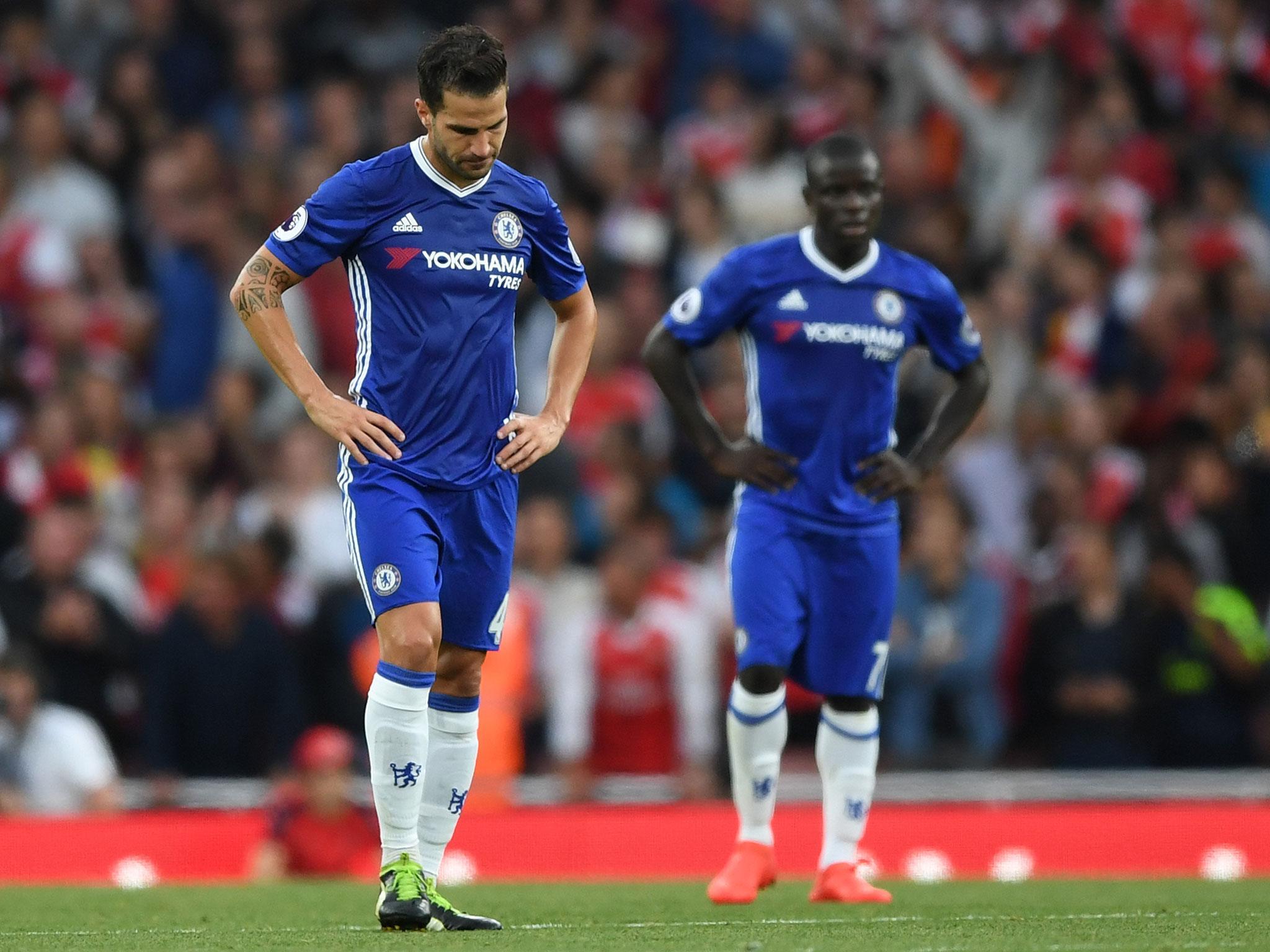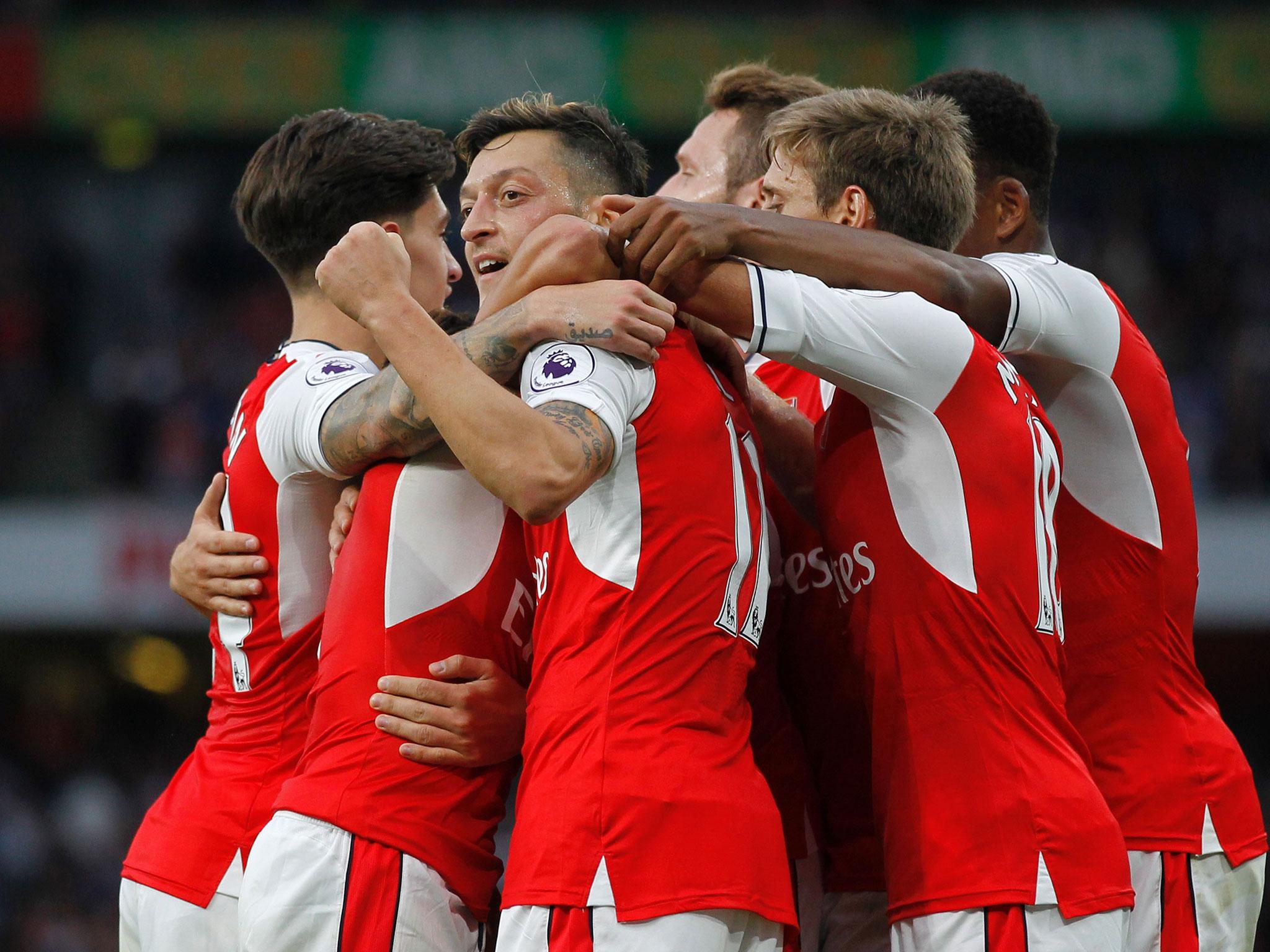Antonio Conte's switch to a back three is the most transformative and season-changing moment we've ever seen
There has never been a tactical change that has so drastically improved a team, so quickly and completely transformed how they play and look, with such a pronounced effect on their form

Your support helps us to tell the story
From reproductive rights to climate change to Big Tech, The Independent is on the ground when the story is developing. Whether it's investigating the financials of Elon Musk's pro-Trump PAC or producing our latest documentary, 'The A Word', which shines a light on the American women fighting for reproductive rights, we know how important it is to parse out the facts from the messaging.
At such a critical moment in US history, we need reporters on the ground. Your donation allows us to keep sending journalists to speak to both sides of the story.
The Independent is trusted by Americans across the entire political spectrum. And unlike many other quality news outlets, we choose not to lock Americans out of our reporting and analysis with paywalls. We believe quality journalism should be available to everyone, paid for by those who can afford it.
Your support makes all the difference.For all that Chelsea’s switch to a three-man defence has been so discussed and analysed this season, there is one hugely impressive element of it that has gone surprisingly underplayed and is perhaps greatly under-appreciated. It’s all the more surprising because it sums up just how inspired Antonio Conte has been and just how managerially insightful he has been.
Really, there has never been a tactical change that has so immediately and so drastically improved a team, so quickly and completely transformed how they play and look, with such a pronounced effect on their form.
It might in that be the most influentially positive mid-season managerial decision since Sir Alex Ferguson decided to sign Eric Cantona for Manchester United in November 1992. It certainly had a similar effect, transforming a team from a big side that just wasn’t properly functioning in to one that suddenly fit so supremely to then glide to the title. Lethargy had instantly become lightning.
That was how big that moment against Arsenal was in September, how different Chelsea now look as they take on the same opposition in the FA Cup final for what is anticipated to be the season’s crowning moment - the culmination of a surge that started in that game.
If all of this sounds outlandish or over-the-top, consider the facts and the history. This is not to forget that history. By contrast, it is to properly appreciate that history.

If you go through the Premier League era alone, there has simply never been a change that has had such a profound effect in the time between Cantona and Conte, and certainly not in the title race. After signing the French star, Ferguson’s next big team-changing decision was fully and bravely introducing the ‘Class of 92’, setting the path towards the treble - but that was a grand plan before the season.
Arsene Wenger’s most influential move was his very arrival at Arsenal, and everything that entailed right up to the Invincibles of 2004, until Roman Abramovich’s millions brought a lot of brilliant signings and the force of Jose Mourinho. Ferguson then gradually evolved a young United again in response to that, as Manchester City learned to how to properly maximise their billions.
Even the Cantona-light signing of Robin van Persie merely enhanced a United squad that had already recently won the title and gone so close, rather than intrinsically transforming how they played; how they performed.
That was the thing with Chelsea. They may have won the title the year before, but the chaos of the following campaign so completely changed the complexion of the team, requiring a new direction. There appeared to be no direction in that 3-0 defeat to Arsenal, just a shapeless, aimless mess that looked likelier to finish closer to 10th again than challenge - let alone become champions.
It remains simply remarkable that was so fully fixed - and greatly improved - with one stunning tactical stroke. It wasn’t with signings or psychology but with the instinctive insight to just know which of his players would be best where; to just have the vision to see what system would most enhance most of his players.
That he saw it without even first really practicing or working on the formation is all the more incredible. That is what really makes it impressive, and so unprecedented in the history of tactics.
Other famous switches from history have had a similarly sweeping effect but never so swiftly and drastically. It is actually very difficult to find similar examples.
The closest parallels probably come in international tournaments, like with Sir Alf Ramsey’s switch to a 4-3-3 in 1966 or Carlos Bilardo’s similar move to wing-backs in 1986, but both of those involved the managers working on them under wraps for much longer periods of time and then being unleashed in the much more contained dynamic of a summer tournament.
There is a strong argument what Chelsea did this season was unique, and its far-reaching influence is further understated by three stats.
First of all, this is the first time a team has won the league with a back three since Everton in 1962-63. Secondly, 16 of the other 19 Premier League teams ended up using the approach. Thirdly, one of those 16 involved a manager who no-one ever thought would ever be willing for such a tactical. Instead, it is highly likely Arsene Wenger will play a back three on Saturday.
There can be no greater sign of how drastic that switch has been, beyond perhaps winning the double.
Join our commenting forum
Join thought-provoking conversations, follow other Independent readers and see their replies
0Comments